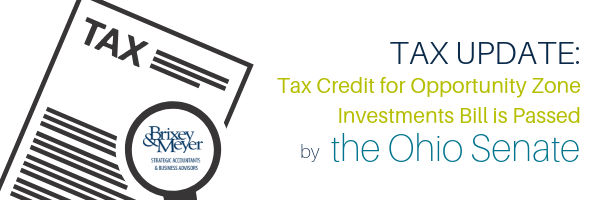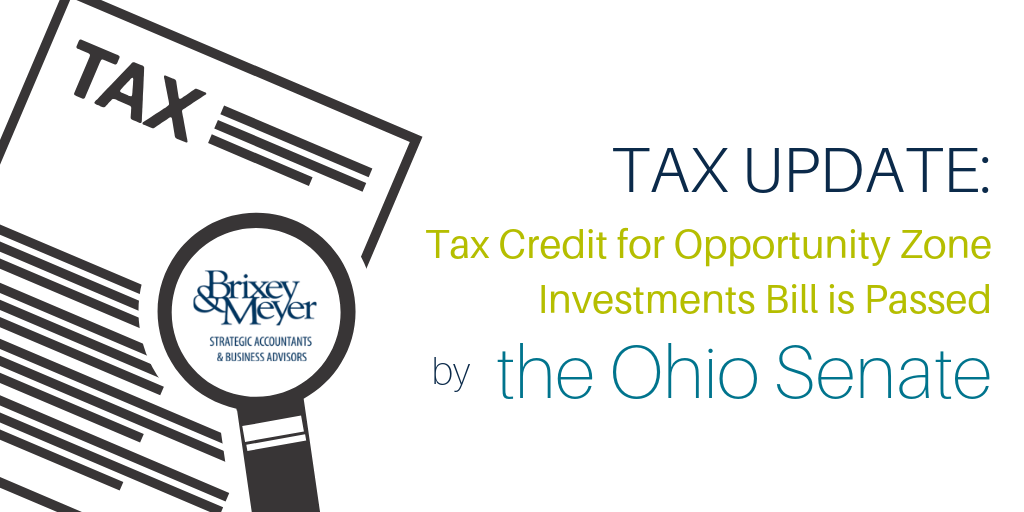Ohio Tax Credit for Opportunity Zone Investments Bill is Passed by the Ohio Senate

The Ohio Senate unanimously passed Senate Bill 8 on April 3, 2019. If enacted, the bill will create a 10% tax credit against the Ohio income tax for Opportunity Fund investments. The maximum amount of credits allowed by Ohio for a two-year period is $50 Million, with a per applicant cap of $1 million. This credit should also available to investors that do not have capital gains to invest. Investors would apply for credits between January 1 and February 1 each year, and the credits are non-refundable but can be carried forward for five years.
In a recent publication, we provided the definition of a federal Opportunity Zone. Congress created the Opportunity Zone Program in 2017 federal tax reform to encourage investment in low-income areas. The IRS and Treasury Department have issued proposed regulations to provide guidance to investors regarding the federal credit. Now the Ohio General Assembly is considering putting a tax credit against the Ohio income tax into place with similar policy and guidance.
The Opportunity Zone Program can be quite complex, and it takes multiple steps to qualify. First, the investor must realize eligible capital gain income, meaning almost any capital gain income subject to a few exceptions. Then, the investor must defer the capital gain and reinvest the capital gain in an "Opportunity Zone Fund” (also discussed in our previous publication) within 180 days and subject to certain exceptions. The investor must ensure the Opportunity Zone Fund invests more than 90 percent of its assets in a Qualified Opportunity Zone Property (qualified property) within an Opportunity Zone, either through operating a Qualified Opportunity Zone Business (qualified business) itself or investing in a subsidiary that operates a qualified business. If an investor follows these steps and qualifies, the investor can defer taxes by reinvesting capital gains from an asset sale into a qualified Opportunity Zone Fund. The capital gains will be tax-free until the fund is divested or 2026 has ended, whichever occurs first. The investment in the fund will have a zero-tax basis. If the investment is held for five years, there is a 10% step-up in basis and a 15% step-up if held for seven years. If the investment is held in the Opportunity Zone Fund for at least 10 years, those capital gains would be permanently exempt from taxes.
Keep in mind that investments in opportunity zones also have associated risks, just like any other investment. Larger, qualified Opportunity Zone Funds and those established by experienced real estate owners and developers like real estate investment trusts generally have an advantage.
Stay tuned for what happens in the House vote!
I If you would like to speak to one of our tax specialists for more information, please call: 1 (866) 760-0940 or send a note to Miranda.Hawk@brixeyandmeyer.com to setup a time to speak.

